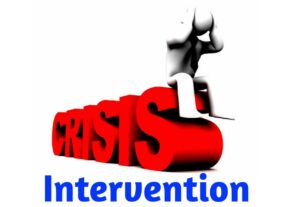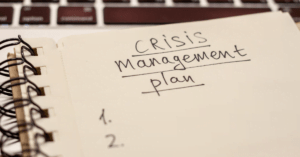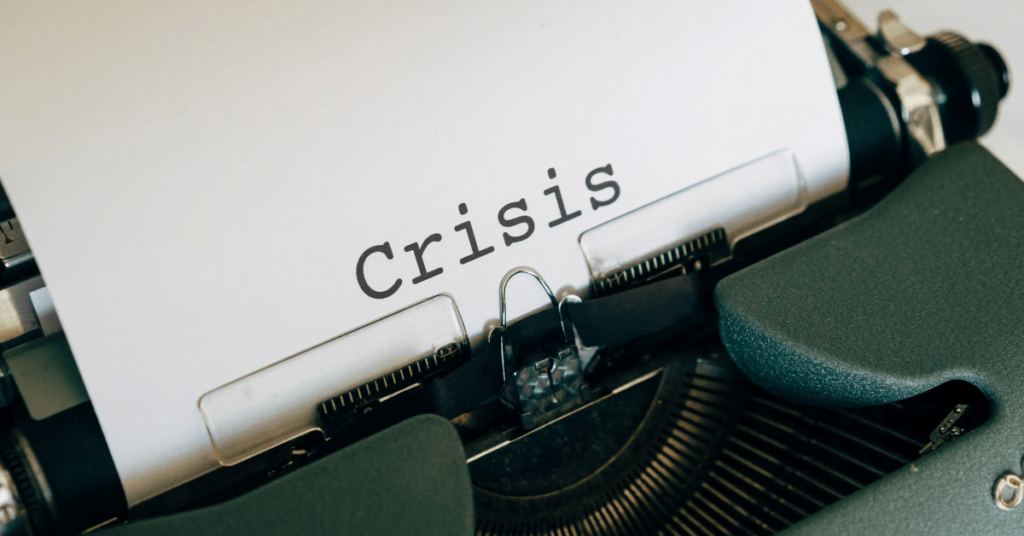Contents
- 1 Crisis Intervention Training: What Is It And Why Should You Care?
- 2 What Is A Crisis?
- 3 Signs You Are At Risk?
- 4 Who Should Know How To Deal With Crisis Situations?
- 5 How Do You Prepare For A Crisis Situation?
- 6 What Is The Best Way To Handle A Crisis?
- 7 How To Find A Good Crisis Intervention Trainer?
- 8 Conclusion
Crisis Intervention Training: What Is It And Why Should You Care?
 Crisis Intervention Training is the act of teaching someone how to deal with crises. This course teaches people how to be adequate crisis workers. The training is very important for dealing with any crises that may arise in the future including sexual violence, substance abuse, homicides, and physical violence, natural disasters, hostage situations, robberies, and more.
Crisis Intervention Training is the act of teaching someone how to deal with crises. This course teaches people how to be adequate crisis workers. The training is very important for dealing with any crises that may arise in the future including sexual violence, substance abuse, homicides, and physical violence, natural disasters, hostage situations, robberies, and more.
A lot of people are not aware that this type of training even exists or what it entails.
The need for Crisis Intervention Training is undeniable. The sad reality is that on any given day on the news, we will hear about an individual who has committed a violent crime and it can be difficult to understand how someone would do something so terrible. As a business owner, you want to provide your employees with the best training possible. And if you or your loved one is suffering from any mental health disorder, Then it’s safe to get crisis intervention training. So they know how to best approach those in need of help. This Crisis Intervention found that 96% of participants who underwent Crisis Intervention Training reported feeling better prepared to handle a crisis situation after completing the course. Some other benefits are an improved sense of safety and reduced anxiety among participants as well as increased confidence in their ability to help others.
Organizations that provide Crisis Intervention Training to their staff will find that they are more effective in assisting with situations. This training is specifically tailored to the needs of the organization and is available for all types of work environments.
What Is A Crisis?
This can be defined as an unpleasant or traumatic experience that has had or will potentially have significant effects on the patient. It usually involves either thought of suicide, homicide, sexual abuse, physical harm, etc.
Many people tend to think of suicide or self-harm when it comes to crisis situations. While these are very prevalent in our society, there is also an increase in sexual violence, substance abuse, homicides, and physical violence that occur on a daily basis. It is important for everyone to know how to deal with these situations in order to help prevent further damage.
There are many different signs that can be displayed, some more severe than others. Some common signs include-

- Self-mutilation or self-harm
- Bipolar disorder
- Suicidal tendencies
- Anxiety or paranoia
- Sexual violence or homicide attempts
- Substance abuse or addiction.
It is important to know that no matter what the crisis situation may be, there are always signs that you can look for. These can range from a person’s body language to the way they are speaking. It is imperative that if you feel like something is not right or there may be an increased chance that harm may come to yourself or another individual, you should act.
Signs You Are At Risk?
It is important to acknowledge your own feelings and emotions when it comes to crisis situations. This way, you can be better prepared to deal with them without becoming overwhelmed or unfocused. If you are feeling at all-
- Anxious or agitated
- Spaced out
- Fearful for your own safety or that of others
Then it may be time to prepare yourself and seek help and/or support.
Who Should Know How To Deal With Crisis Situations?

Everyone. At any moment in time, anyone could potentially be faced with a crisis situation. It is important that everyone knows what to do in order to best deal with the patient and not become overwhelmed. If you are in public and see someone having an anxiety attack, you need to know how to handle the situation so they don’t feel judged or embarrassed.
It is important to be prepared for anything. You may not have the time or resources to prepare, but by understanding what can happen ahead of time you are already 1 step ahead of those who are clueless. No matter what the situation may be, it will always feel better knowing that you have done something to help yourself or others.
How Do You Prepare For A Crisis Situation?

It is important to understand the different types of crises and how they often come about. So you can be prepared at all times. Will it be an active shooter in the room next door, or another individual having a psychotic break?
Not all crisis situations end in tragedy. If they do, it is most often by chance rather than because of a lack of effort on the part of others to prevent such an incident from occurring. The best thing that you can do is encourage the person to speak with someone about what they are going through. They may not want or be able to trust you, but that doesn’t mean it is impossible for them to speak with another person, whether it be a therapist, family member, friend, etc. Sometimes just having an outlet can help the patient feel much more at ease when speaking to someone about their feelings.
What Is The Best Way To Handle A Crisis?
The worst thing you can do is panic and become overwhelmed. The more rational and clear-headed, the better chance you have of making the correct decisions that will benefit everyone involved. Here are some tips:
Listen And Remain Calm
It is important that you listen to what the patient has to say. You don’t want to make them feel judged or like they are being rushed. By remaining calm, you can help diffuse any tension that may be present and let them know it is okay and safe to talk about their problem.
Provide An Outlet
Encourage the patient to speak. Sometimes it’s helpful to ask open-ended questions or reflect back on what you are hearing in order to clarify what is being said. This way, they feel heard and understood which will help decrease their anxiety by feeling less alone with their problem.
Be Comforting
 Sometimes just knowing you are there can help. By being present and non-judgmental, you are letting the patient know that they have someone they can count on to be their rock during these difficult times. You don’t need to provide words of wisdom or solutions but just by being supportive and a listening ear you already let them know that everything will be okay. Remain calm and try not to overreact- which leads to panic and frustration.
Sometimes just knowing you are there can help. By being present and non-judgmental, you are letting the patient know that they have someone they can count on to be their rock during these difficult times. You don’t need to provide words of wisdom or solutions but just by being supportive and a listening ear you already let them know that everything will be okay. Remain calm and try not to overreact- which leads to panic and frustration.
Ask Questions That Will Assess The Situation
Try to find out what is going on with them and if they need help. There are definitely other things you should do, but these are a few basics to know how to “handle” a crisis situation. It’s important to remain calm and clear-headed. Never judging them- for anything. Everyone has their own battles that are unseen to the outside world. People are often embarrassed to talk about what they are going through because of fear of being judged or how others will react. Simply saying, “It’s okay,” can make the patient feel much more at ease and take away their fear of speaking with you.
Be Prepared
If you are in public, with the patient or not, try to think of all possible crisis situations that could occur so you can be more prepared. If you are always prepared, there is less chance for anything unexpected to take place and panic will be less likely to ensure if these steps are followed.
How To Find A Good Crisis Intervention Trainer?

The good news is that good crisis intervention trainers exist. But how do you find them? The first step is to know what to look for. If you are looking for a quality crisis intervention trainer, there are a few things to keep in mind. First of all, you need to find someone with experience and qualifications. Second, they should have a strong background in mental health education.
The job of a mental health counselor is multifaceted and requires a great deal of patience. Mental health counselors work to ensure that their patients are mentally well, all while providing support and guidance. It is important that these professionals have extensive knowledge in this field.
Mental health counselors are responsible for ensuring that their patients are mentally well, all while providing support and resources to help them get back on their feet. This can be a challenging task, especially if the counselor is dealing with a completely new patient. However, it’s important for mental health professionals to remember that they’re not alone in this process. Mental health counselors are surrounded by other professionals who are there to help
Mental health counselors are people who understand the importance of mental health and mental illness. They help people with their mental struggles to get through life.
Mental health counselors are surrounded by other professionals who are there to help them. These coworkers understand the importance of the counselor’s job and they know what goes on day in and day out in order to best support them.
Mental health counselors come from all different areas of expertise, but all have one thing in common – they are passionate about helping others with their mental health issues.
Conclusion
These are my final thoughts on crisis intervention training. No two people are alike, which is why it’s important to provide crisis intervention training to everyone with different backgrounds and experiences. It teaches them how to understand their specific cases and what they can do to help.
Crisis intervention training is beneficial for the person who suffers from a crisis as well as for their loved ones, friends, and family members
All of us have experienced difficult times in our lives and we know how challenging it can be to find resources and support. Well, one way to make the situation less challenging is to learn how to respond to a crisis. Crisis intervention training teaches people skills such as listening, sharing, empowering, and staying calm when someone is experiencing a crisis. If you or somebody you know wants to take crisis intervention training. Or If you are looking for more information on the same topic. If you are looking for affordable Online Counseling MantraCare can help: Book a trial therapy session


